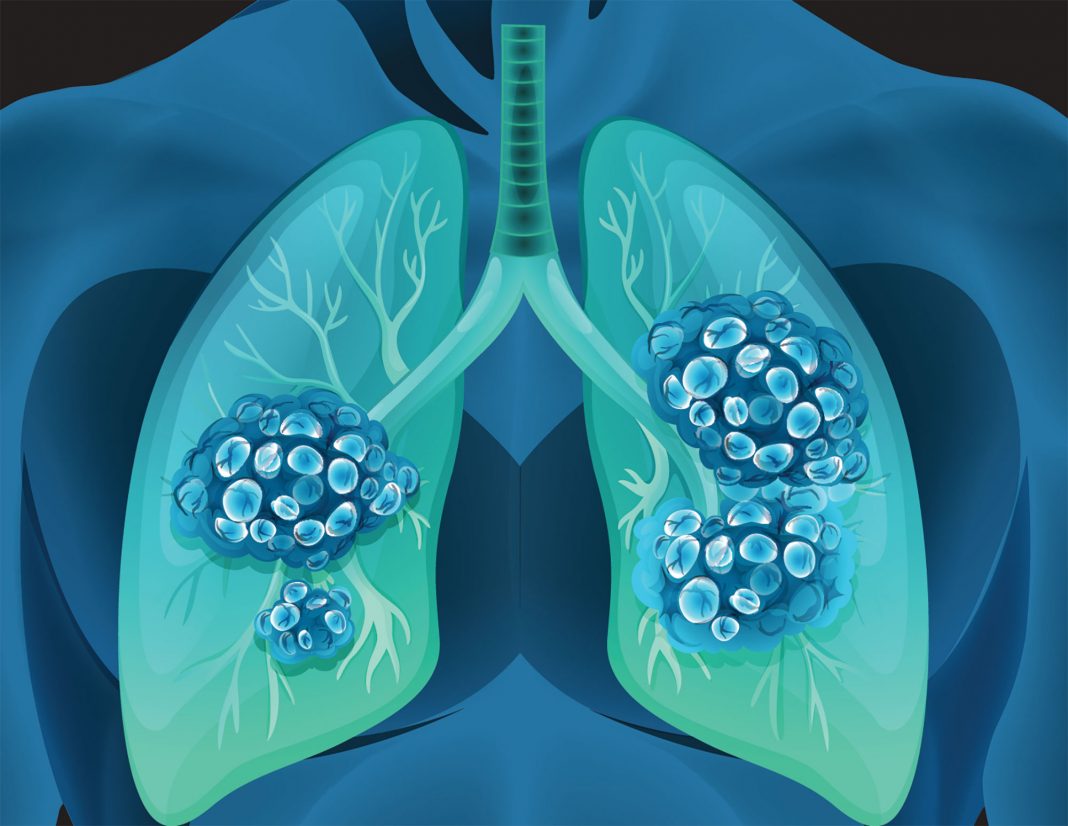Actinidia arguta, also known as Sarunashi, is an edible fruit cultivated in Japan’s Okayama Prefecture. Researchers from Okayama University, led by Sakae Arimoto-Kobayashi, PhD, associate professor in the faculty of pharmaceutical sciences, have demonstrated in a mouse model, that Sarunashi juice (Sar-j) and its key constituent, isoquercetin (isoQ) can help prevent and reduce lung cancer. The team reported the findings in Genes and Environment, in a paper titled, “ Chemopreventive effects and anti-tumorigenic mechanisms of Actinidia arguta, known as sarunashi in Japan toward 4 (methylnitrosoamino)‑1‑( 3-pyridyl)-1-butanone (NNK)-induced lung tumorigenesis in a/J mouse.”
In their paper, the team concluded, “Sar-j targets both the initiation and growth/progression steps in carcinogenesis, specifically, via anti-mutagenesis, stimulation repair of alkyl-DNA adducts, suppression of Akt-mediated growth signaling.”
Lung cancer is the leading cause of death in Japan and across the globe, and has one of the lowest five-year survival rates of all cancers. Smoking tobacco and using tobacco-based products is known to heavily contribute to the development of lung cancer. As the authors explained, “The relationship between lung cancer and tobacco-specific nitrosamine, 4-(methylnitrosamino)-1-(3-pyridyl)-1-butanone (NNK), has been investigated via molecular epidemiological studies … NNK effectively induces lung tumors in mice, rats, and hamsters, and is believed to play a significant role in the development of lung cancer in smokers.”
It is a clinically established fact that the active ingredients in various fruits can minimize the risk of chronic diseases including cancer, the authors suggested. “Epidemiological data support the association between high fruit intake and a low risk of chronic diseases. The bioactive properties of fruits have long been the focus of investigations.”
A. arguta is one of the richest sources of polyphenols and vitamin C, the researchers further stated. They had previously demonstrated the inhibitory effect of Sarunashi juice on mutagenesis, inflammation, and mouse skin tumorigenesis, and identified the components of A. arguta responsible for the anti-mutagenic effects as water-soluble and heat-sensitive phenolic compounds. Subsequently, the researchers proposed the major polyphenolic compound in A. arguta, isoQ as a constituting component with anticarcinogenic potential.
As Arimoto-Kobayashi explained, for their newly reported study, “… we sought to investigate the chemopreventive effects of A. arguta juice and its constituting component isoQ on 4-(methylnitrosamino)-1-(3-pyridyl)-1-butanone (NNK)-induced lung tumorigenesis in A/J mice, and identify the possible mechanisms underlying the anti-tumorigenic effects of A. arguta.”
The investigators studied the effects of sar-j and isoQ on lung tumorigenesis in mice injected with the cancer-causing compound NNK. The results were encouraging, and showed that the number of tumor nodules per mouse lung in the cohort that received NNK injections and oral doses of A. arguta juice was significantly lower than in the group injected with NNK only. “Of note, sar-j reduced NNK-induced pulmonary nodules by
25.4% on average and completely inhibited the tumor formation in 5 out of 9 mice,” the investigators stated. Oral administration of isoQ also reduced the number of nodules in mouse lungs.
Next, the team investigated the likely mechanism of action of sar-j. NNK and 1-methyl-3-nitro-1-nitrosoguanidine (MNNG) are known mutagens. The team designed a series of experiments to study the effect of sar-j and isoQ on NNK- and MNNG-mediated mutagenesis using Salmonella typhimurium TA1535, a bacterial strain commonly used for detecting DNA mutations. As expected, the mutagenicity of NNK and MNNG detected using S. typhimurium TA1535 decreased in the presence of sar-j. However, when similar tests were conducted using S. typhimurium YG7108, a strain lacking key enzymes responsible for DNA repair, sar-j was unable to decrease the mutagenic effects of NNK and MNNG. Based on this key observation, the researchers concluded that sar-j seems to mediate its antimutagenic effect by accelerating DNA repair.
Finally, using cell-based experiments, the team also showed that sar-j suppressed the action of Akt, a key protein involved in cancer signaling. Akt and associated protein Pi3k are known to be over-activated in several human cancers.
As Arimoto-Kobayashi, co-author Katsuyuki Kiura, PhD, a professor in the department of allergy and respiratory medicine, Okayama University Hospital, and colleagues, concluded in their paper, “ Sar-j and isoQ reduced NNK-induced lung tumorigenesis. Sar-j targets both the initiation and growth/progression steps during carcinogenesis, specifically via anti-mutagenesis, stimulation of alkyl DNA adduct repair, and suppression of Akt-mediated growth signaling. IsoQ might contribute in part to the biological effects of sar-j via suppression of Akt phosphorylation, but it may not be the main active ingredient.”
The team believes that the constituting components of sar-j, including isoQ, may be attractive candidates for chemoprevention.


